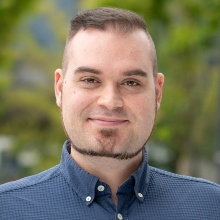In recent years, quantum computing has indicated promising areas of application, including the simulation of stochastic processes and the broad field of machine learning. In particular, it was shown that quantum simulation models for stationary discrete-time stochastic processes offer a theoretical advantage over their classical counterparts. However, only little is known about its practical application and how such models can be obtained based only on data. Meanwhile, the combination of machine learning techniques with quantum computing, i.e., the field of quantum machine learning, indicate a way how this can be achieved practically and efficiently on near-term quantum devices. Yet, important questions remain open, such as if models for more complex processes can be obtained the same way, and whether these models outperform their classical counterparts as well. Thus, the aim of the project is to extend the existing framework for discrete-time stochastic processes towards more complex processes, study its overall performance in terms of the simulation accuracy and memory requirement, and to develop efficient machine learning methods to obtain such quantum simulation models.


